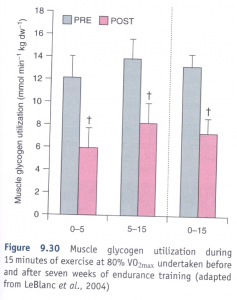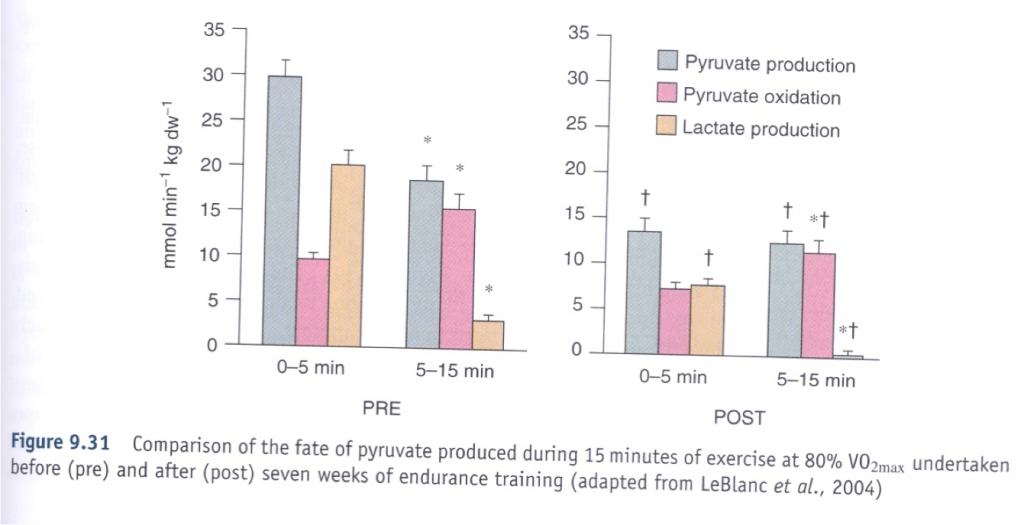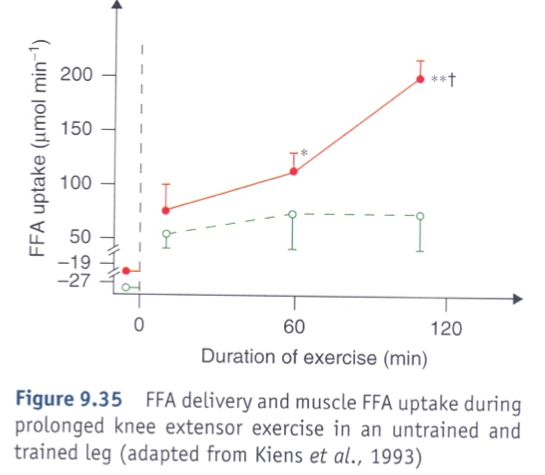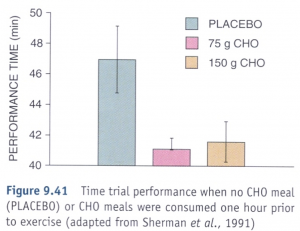Because I am a woman of my word, today I write to you (on a much more scientific level) about the effects of low-carbohydrate diets in athletes. You know from last week’s several paragraph rant that the high-fat / low-carb diet and I aren’t exactly friends. But what if I’m a freak and, although the diet didn’t work for me, it will work for anyone else (i.e. all you normal people)?
The truth is, I am a freak, but not when it comes to experiencing a decline in performance following the low-carb diet. Still don’t believe me? Prepare to be nerdified! (Don’t try that word in Scrabble … it won’t end well. If you want to make up words without consequences, start writing blogs.)
Low-Carb Diets in the Lab
Sports scientists were just as interested as I was when it came to the high-fat / low-carb diet. However, unlike me, they were smart and didn’t try the diet themselves; they just got IRB approval and made some other people try it! Here’s what they found:
The Low-Carb Diet Slows You Down
If you need to get anything out of the graph above it’s this: not eating a high-carbohydrate meal before you exercise can seriously hurt your performance. When on a high-fat / low-carb diet, you are not allowed to eat carbs, even before exercise. As you can see, the placebo group who ate no carbs took 47 minutes to complete a time trial while the two groups who ate carbs before exercise (75 g or 150 g… both well above the daily 50 g limit of the low carb diet) took less than 42 minutes to complete the same time trial. Both groups had trained the same amount and both groups were considered to be “in-shape”, yet the group that ate carbohydrates ran faster… hmmm interestingggg.
The Low-Carb Diet Causes Early Fatigue
This particular table depicts the results of four different experiments that focused on the effects of eating low-carb. In all four experiments, 3 subgroups were studied: a group that ate a typical diet, a group that followed a low-carb diet, and a group that followed a high-carb diet. All three subgroups within each experiment were then told to exercise at high-intensity until they reached the point of exhaustion.
The first two experiments (see the top two rows) found that individuals who ate low-carb reached a point of fatigue far earlier than individuals who ate normally or high-carb, with those who were packing on the carbs capable of going the longest. For example, in the top row, the sub-group who ate high-carb was able to exercise for about 6.65 minutes at maximum intensity while the sub-group who ate low-carb could only exercise maximally for about half the time, roughly 3.32 minutes.
The last two experiments (see the bottom two rows) show no significant differences in time to fatigue between high-carb, low-carb, and normal diets.
Moral of the story? Eating low-carb may not affect the amount of time it takes to reach fatigue but, if it does, it will definitely cause you to bonk out a heck-of-a-lot sooner than if you ate high-carb (or even normally !)
The Better Approach
Want to maximize your performance as an athlete? Well, let me tell you one thing: eating low-carb is not the answer. Want the answer? Train. Whoa, shocker there!
Your coaches and all those corny quotes you saw on social media weren’t kidding: hard work pays off. Let me prove it to you… scientifically! (:
Training Spares Your Glycogen

Some of you may have heard this already, but, if you haven’t, glycogen depletion during exercise is very bad. Ever seen a marathoner “bonk” and collapse at mile 20 of the race? That’s glycogen depletion, my friends. That poor soul ran out of glycogen stores and therefore had nothing left to produce the energy that was needed to finish the race.
This graph, provided by yours truly, shows the effects of seven weeks of endurance training (with no changes in nutrition) on glycogen depletion. The blue bars represent the amount of glycogen that was used during exercise before the training program, while the pink bars represent the amount of glycogen that was during exercise after the training program.
It’s not hard to see that the training program caused individuals to use less glycogen during exercise, meaning that their glycogen stores were depleted at a much slower rate. If glycogen stores are depleted at a slower rate, more will be saved for later, meaning that you will last longer! No more “bonking” for you. But, just to be safe, I would eat some carbs during lengthy exercise… because no one likes falling on their face in front of strangers.
Training Reduces Your Lactic Acid Production

Because I love simplicity, let’s just look at the yellow bars in these two graphs. These bars represent the amount of lactate (i.e. lactic acid) that is produced during exercise. The graph on the left shows the amount of lactic acid that was produced before individuals embarked on a seven week training program. The graph on the right displays the amount of lactic acid produced after the training program. As you can see, these individuals produced significantly less lactic acid after putting in several weeks of hard work.
But why is this a good thing? Well, have you ever felt that burning sensation in your muscles while running, lifting, or participating in any form of strenuous exercise? Yeah, that’s lactic acid. Lots of lactic acid makes you slow down and eventually stop. It’s, therefore, a no-brainer that less lactic acid accumulating in your muscles is a good thing!
Training Makes You Use More Fats During Exercise
As, I stated in my previous

blog , following the high-fat / low-carb diet allows the body to burn more fat during exercise, causing you to produce more energy and thus last longer. Well, the thing is, training does the same thing, without all the headaches, crappy performance, crankiness, and sugar-cravings that I described in last week’s blog.
The study represented by this graph is super cool. Basically, scientists had a guy do leg extensions using just one of his legs for several weeks while leaving the other leg completely untrained. Then, they had the one-legged-wonder come into the lab for a test. It was shown that the trained leg was able to take in and burn more fats for energy (see the red line) than the untrained leg (see the green line). How’s that for science ?!
Moral of the Story
Some people wonder why I love science so much. To me, it’s pretty obvious: science doesn’t lie! The moral of the story I’ve been trying to portray over the past two weeks is this: eat carbs, especially if you are an athlete. Want to get better? Keep putting in the work and trusting the process.
If you’re interested in tailoring your nutrition plan to lead you to a new personal best, I suggest you check out our new ONLINE Sports Nutrition Basics Program or schedule a FREE No Obligation Consultation with our Registered Dietitian today!

